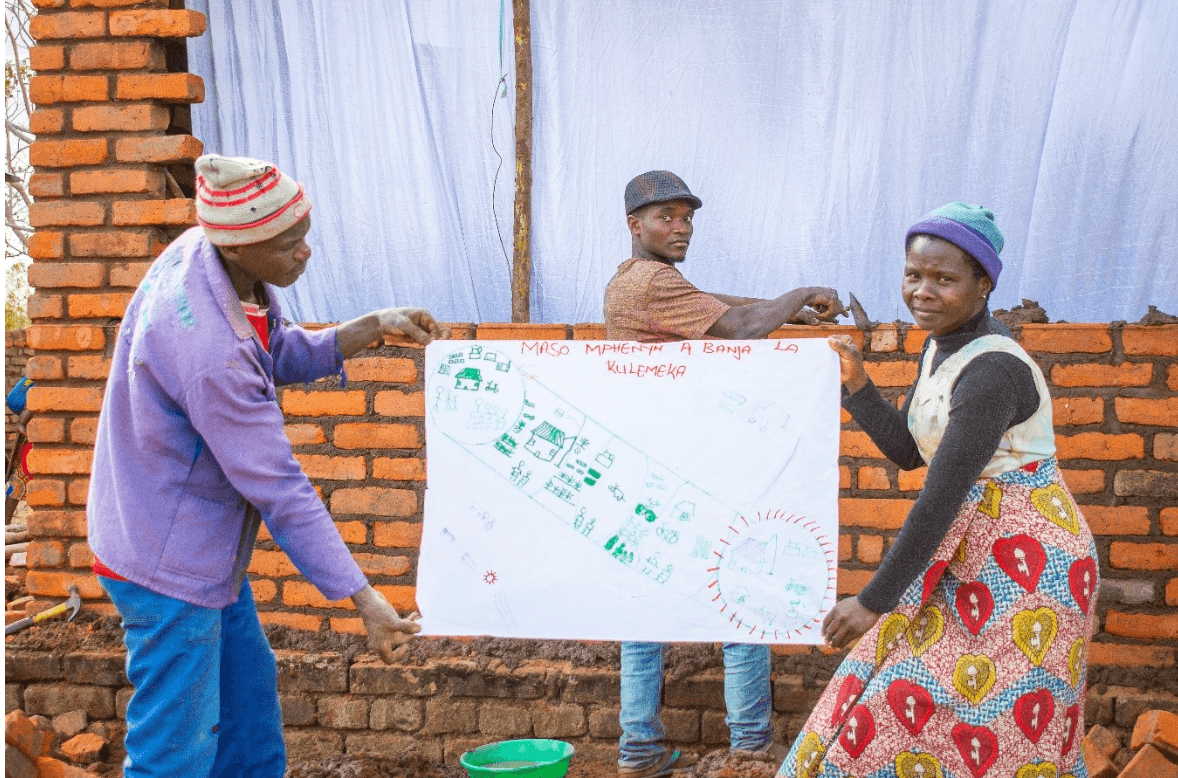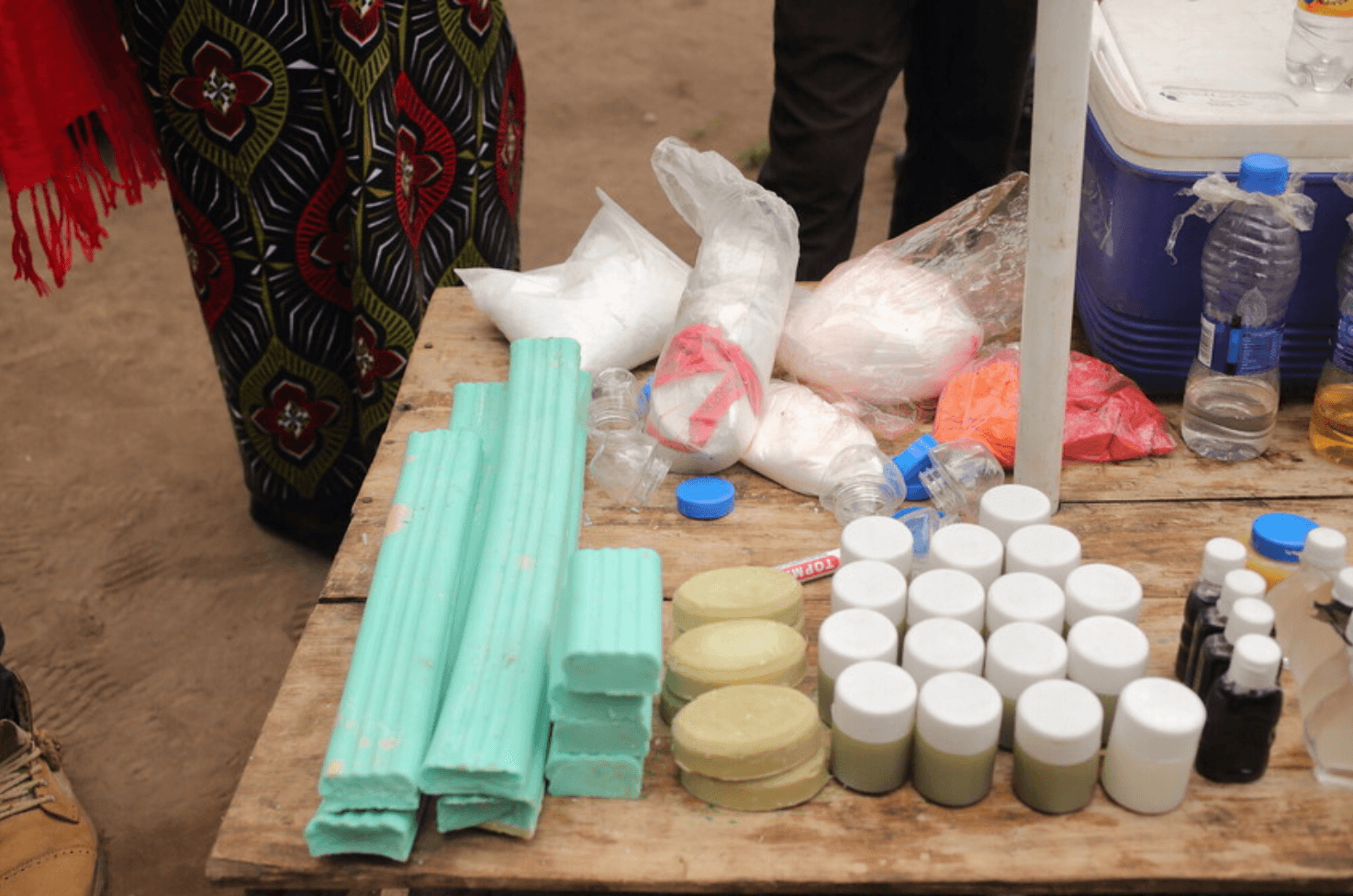Couple have sustainable future with climate-smart soap business
In Malawi, Susan and her husband Ramos are excited for the future. After years of uncertainty and financial troubles, they are excited that their new business venture is paving the way to a more secure and sustainable future.

Susan and Ramos previously relied on small jobs in farms or ‘piecework’ to get by. A venture that was not only filled with hard labour but also one that yielded little returns, if at all.
“We barely had enough to cover expenses at home.” says Susan.
Building back better
When Susan and Ramos heard about a new project in their village that was offering business management training, they decided to join. A decision that allowed them to learn about business creation and savings.
With this newfound financial knowledge and support, the couple was inspired to start a herbal soap making business. Using simple ingredients like caustic soda, water, herbs such as moringa and neem as well as petroleum, they made both bath and washing soaps and even body lotion that quickly gained popularity not just in their small village but as far as Malawi’s capital city, Lilongwe.

Together, they now produce more than 150 bars of soap monthly and with daily earnings of $179.77, their income is now well above the minimum wage and poverty line thresholds.
“With this, I have been able to purchase partial iron sheets, a crucial step towards realizing our dream home.” says Ramos.
“I’m optimistic that we will soon have enough to purchase the cement and commence construction.” he adds.
“These interventions have significantly improved our family’s well-being. I can now provide food and clothing for our two children. Besides assisting with soap mixing, I also manage the shop, ensuring smooth operations while my husband procures the necessary ingredients.” says Susan.
Empowering marginalised communities
Malawi has experienced years of recurrent climate disasters including droughts and tropical cyclones that have seen them lose harvests and experience high inflation. Overtime, this has exarcebated food insecurity with up to 9 million people, nearly half of the countries population being food insecure. This together with entrenched social norms have seen women and girls disproportionately affected and left out of any decision making processes.
It became important that communities find new ways to increase their resilience against such climate-related shocks. To support this, Plan International implemented a strengthened resilience through complimentary livelihood interventions project to help the communities navigate the complex social, economic and climatic challenges.
The project that ran between 2021 and 2024 first sought to address restrictive gender norms that saw men as the dominant decision makers with control over productive resources and assets despite women’s significant contributions to agricultural labour. This they did by advocating and training communities on the importance of enhanced communication and shared decision making, with time increasing women’s economic participation and leadership.
Assessing impact
As a result, women, who were once confined to domestic roles, now occupy 73% of leadership positions in local governance, championing initiatives like resilient housing and sustainable agriculture, while 94% of households now engage in joint decision-making, up from 59.6% at the start of the project. There has also been improved communication between spouses, with 87% of households acknowledging more open discussions about family matters where boys, girls, men, and women voice their opinions and aspirations, fostering self-confidence and leadership skills.
The project’s impact is evident in reduced gender-based violence, with incidents of physical abuse falling from 67.4% to 47.8%, and in economic gains, such as women-led businesses flourishing and household incomes increasing, with some female-headed households seeing a fivefold rise. Agricultural productivity has also surged, with maize yields increasing from 260 kg to 447.4 kg per household, driven by the adoption of climate-smart practices like organic Mbeya manure and the System of Rice Intensification (SRI), which have been particularly empowering for women farmers by reducing labor intensity and enhancing crop resilience.
“These interventions have significantly improved our family’s well-being. I can now provide food and clothing for our two children. “
Susan
Susan and Ramos’ story is a testament to the transformative power of community support, education, and hard work. From struggling to make ends meet to building a thriving business and dreaming of their new home, they have come a long way.
Categories: Education, Skills and work


